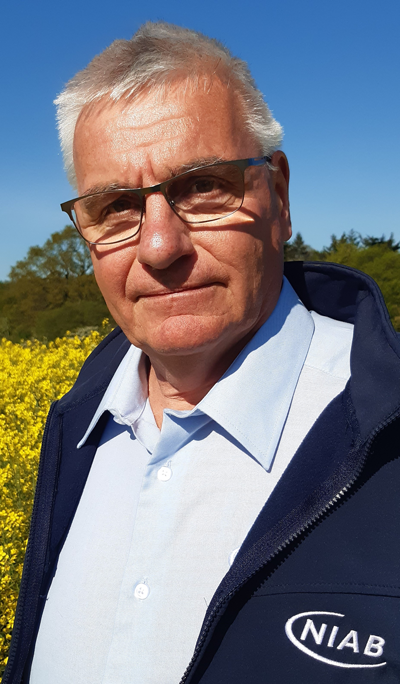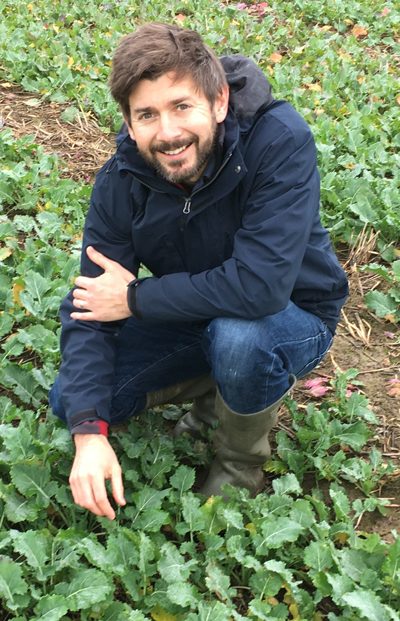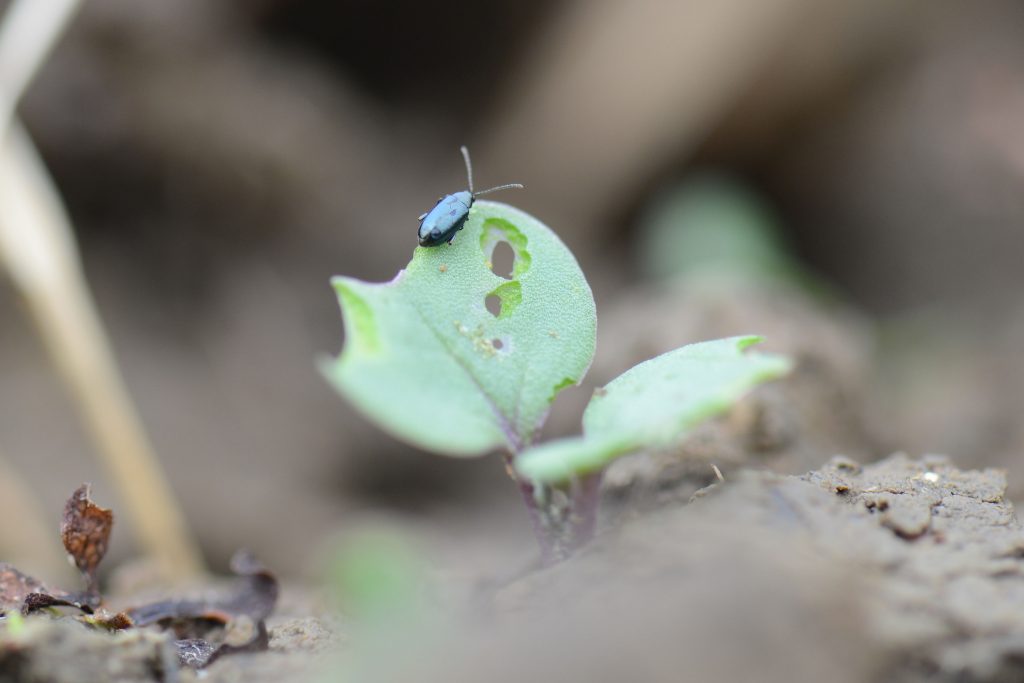Arable industry joins together to fight cabbage stem flea beetle
5th February 2021
A cross-industry taskforce is calling for UK oilseed rape growers to join an ambitious on-farm monitoring and trials programme in the war against cabbage stem flea beetle.
csfbSMART – ‘Sharing Management and Agronomy Research Tools’ – has been set-up to test management methods and tools for use against the pest on UK farms, with oilseed rape growers provided with information on how to implement and assess these management strategies over the next three years.
It connects two research projects investigating CSFB control. ‘Reducing the impact of CSFB on OSR in the UK’ aims to improve understanding of the pest’s biology and investigate alternative management methods. It is led by ADAS and Harper Adams University and funded by AHDB and a consortium of industry organisations. The second, ‘CSFB: evaluating management of oilseed rape on-farm for maximum margins’, led by NIAB and funded by Defra, aims to test these management methods on a wider scale, encouraging growers to carry out their own trials and assess their effectiveness.
In this way, csfbSMART brings together farmers, entomologists and agronomists with partners across the supply chain and research, including plant breeders and physiologists. The task-force behind the project includes AHDB, NIAB, ADAS, Harper Adams University, Rothamsted Research, United Oilseeds and Sentry Ltd, alongside independent and distributor agronomy advisors and plant breeding companies.

NIAB oilseed rape specialist and project leader Colin Peters
NIAB oilseed rape specialist and project leader Colin Peters describes csfbSMART as a unique, one-off, opportunity, drawing together everybody’s knowledge and experience in a coordinated and sustained effort, and urges growers to immediately sign up for the initial workshop at www.niab.com/csfbsmart.
“From spring 2021 through to 2024, csfbSMART will help support farmers to monitor, assess and share information, building a national and seasonal picture of the pressures of CSFB larvae and adults within oilseed rape crops and the wider farming environment. Learning from successes and failures, and working together with researchers and trade experts, will allow growers to select innovations for detailed assessment through on-farm evaluation and research investigation.
“This is a great opportunity to bring together all those with a vested interest in this break crop. Farmers and researchers have an opportunity to gain up-to-date information gained from on-farm evaluation in a commercial situation. Scientists can support farmers in monitoring this pest and help them make informed crop husbandry decisions which will improve the reliability of crop performances,” says Mr Peters.
Dr Sacha White, senior research entomologist at ADAS, explains that in light of widespread pyrethroid resistance, control of CSFB now relies primarily on a range of non-chemical control methods that either allow crops to avoid the pest or mitigate against its damage.

Dr Sacha White, senior research entomologist at ADAS
“However, more work is needed to identify how reliable these methods are, the situations in which they work best, and the benefits that can be gained by using multiple methods in concert. By providing growers with the support to try these management methods, assess their effectiveness and feed data back to the project we will be better able to develop effective IPM strategies for the pest that can be tailored to a range of on-farm conditions,” says Dr White.
Cambridgeshire farmer David White emphasises the industry-wide desire to reduce increasingly ineffectual farm insecticide applications, particularly on oilseed rape. “Farmers are practising a broader range of IPM techniques of which some will be more effective than others. There will be growers that are unaware of measures that have been tried successfully by others but, as always with farmer trials, the results will not have been accurately quantified. This initiative is important in how it combines this knowledge set, giving farmers a broader range of IPM measures to try that have been backed up by statistically verified data.”
Bayer’s Richard Phillips sees the increased CSFB beetle pressure as a big part of the problem when establishing a crop of oilseed rape. “csfbSMART is an excellent opportunity for oilseed rape plant breeders, including Bayer’s DEKALB, to work with farmers and industry partners, bringing our great knowledge in variety traits and characteristics to help guide on-farm testing to battle the beetle.”
Oilseed rape growers and agronomists can sign up to csfbSMART at www.niab.com/csfbsmart which will include details of up-coming online virtual meetings and workshops.

